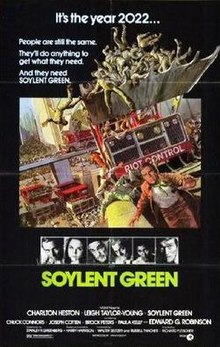I discovered one of my favorite poems in the seventh grade.
Most of you probably know it—The Road Not
Taken, by Robert Frost. I thought of it as I was out hiking in the hills
above Woodside yesterday.
Two roads diverged in
a yellow wood
And sorry I could not
travel both . . .
I kept the first for
another day
And that has made all
the difference
Literary scholars have debated about the ending for scores
of years. Is the author happy with the road that he chose? Or is it a nostalgic
telling, a wish for a second chance, a second life? That ambiguity is precisely
what I love about the poem.
There are two lessons to take away; First, we must make
choices. We can’t avoid them, and we have to choose between several options –
mostly without exploring each one fully. Second, there is no right road or
wrong road. There is no road in the entirety of the world where God cannot meet
us.
We all have threads – words – that mark our roads and make
them uniquely ours. Part of my road, one of my threads, is anxiety.
I started college in the fall of 2003 at Westmont College, a
tiny and lovely school 2,000 miles from where I had lived the last long chunk
of my life. My parents had just moved from that place to Northern California,
so my last vestiges of ‘home’ were gone. In the midst of one of the most
anxious times of my life, I took a risk, trusting God in a moment-by-moment
way. It was profoundly rewarding, an experience of clinging and abiding in
fear.
I graduated college in the spring of 2007, and I was
terrified. Terrified of the unknown, of the end of something familiar and
cocoonish, and on a road that required very little work of me. I avoided pain
with finesse those few months, and wasn’t willing to trust or be still.
God was no less present with me at the end of college than
he was at the beginning. But that’s not how I felt. I’ve come to learn slowly
something that Dallas Willard says well – that emotions are terrible masters
but excellent servants. You don’t get to know at the beginning, most of the
time, whether a road is a ‘right’ or a ‘wrong’ one. It is a mostly false
distinction anyhow. My road is my road, and when I waste my time wanting
someone else’s journey, I lose any ability to be faithful to God and to the
present moment.
At that time, I had (many) long conversations with my good
friend Michele. She asked me a bunch of questions, as is her wont, and I didn’t
have good answers so I tried to fabricate what I thought were the ‘right’ ones.
“What do you want from God now?” she asked me.
“I guess . . . more of him, and less of me?”
“Okay. Why?”
Why? What does she mean, why?
It’s in the Bible! It sounds great! I don’t know why.
“Try again,” she would say.
“Maybe I just want to find God,” I finally told her.
“You want to find God? Why can’t you let God find you?”
For someone who couldn’t sit still, couldn’t trust, these
words were like an arrow to my heart. Immediately, I thought of Robert Frost
and that poem. I thought of a million reasons why God couldn’t find me: I was
on the wrong road. I was running away from him. I was terrified of encountering
him, so I hid.
But what Michele said struck me as incredibly characteristic
of the one who would go out to find his one lost sheep, the one who would come
to dwell among the people he loved on earth. God is in the business of finding
people.
Lest that sound passive, it is not. This endeavor requires
no less than our very souls offered daily to God – it is a pursuit to which we
are called body, heart, strength, and mind.
|
Oh, I kept the first
for another day!
|
|
|
Yet knowing how way
leads on to way,
|
|
|
I doubted if I
should ever come back.
|
We don’t get to come back, most of the time. Our lives are
fairly linear, which means there can be growth, and what a good thing that is!
And we can live in nostalgia, or in joy, or in some bittersweet comingling of
the two. And that, too, is our gift – the coming of the God who finds us.

